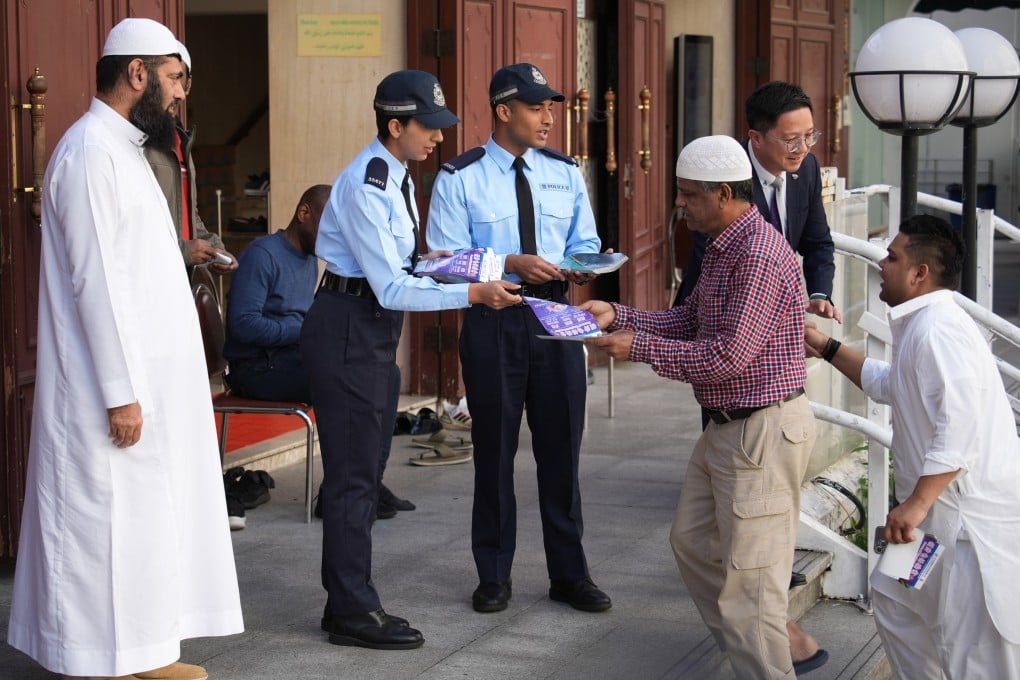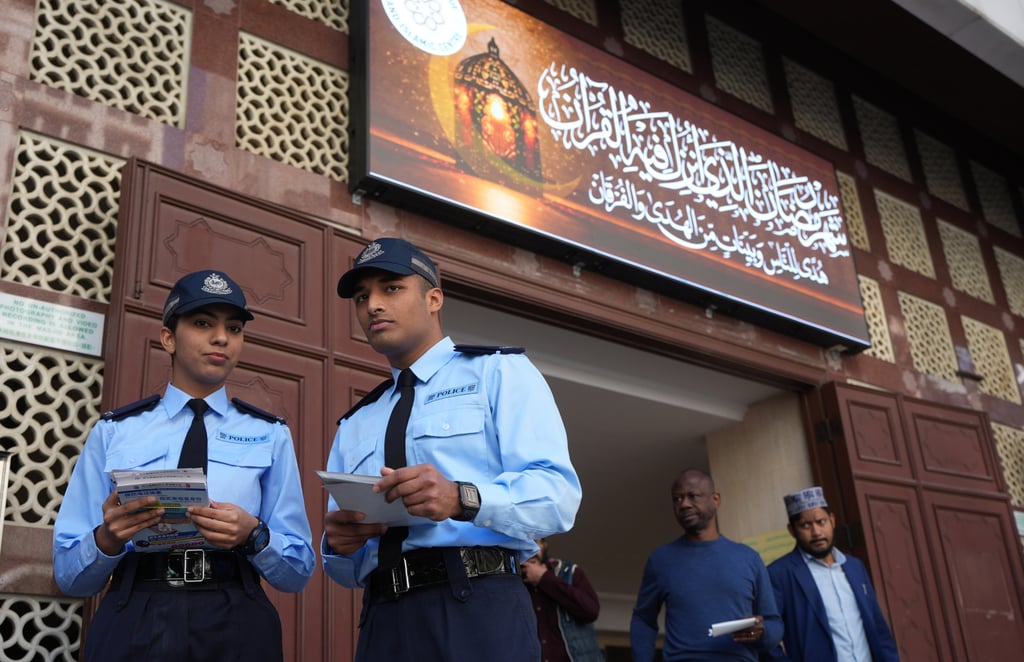Ramadan: how Hong Kong’s police officers cope while fasting during the Muslim holy month
- Constable Adnan Mohammed once arrested a suspect just as it was time to break his fast, saying refraining from food and water from sunrise to sunset does not hinder his ability to catch criminals
- But he says sometimes work can get in way of observing the five daily prayers at their fixed times

For policeman Adnan Mohammad, working in March and April means patrolling the streets of Hong Kong’s Yau Ma Tei without food or water throughout the day.
Mohammad is observing Ramadan, the ninth month of the Islamic calendar when Muslims do not eat or drink from sunrise to sunset. This year, the holy month is expected to span from March 12 to early April.
The young officer said fasting did not hinder his ability to catch criminals, recalling an incident from last year when, despite refraining from food and water all day, he arrested a suspect just as it was time to break his fast at sunset.
“The sergeant asked me to grab some food first [after the arrest], but I said I needed to finish the paperwork first,” he said. “I ended up having some light bites before finishing the work.”
Mohammad, who is of Pakistani descent, is among the more than 150 members of the city’s police force from an ethnic minority background. While he has decided to continue his duties as usual, the force has said it offers Muslim members flexible work arrangements to accommodate their needs during Ramadan.
“Depending on their needs, we will provide suitable aid at work for [colleagues who are fasting],” said Hung Ka-wai, a police community relations officer on ethnic minority support in Yau Tsim Mong district.

A senior officer familiar with the arrangements said that staff could pray in police stations where they worked, with rooms converted to prayer spaces.